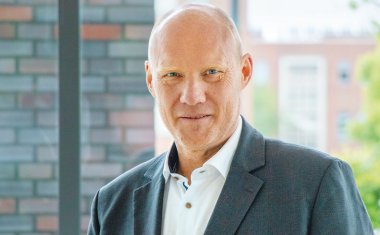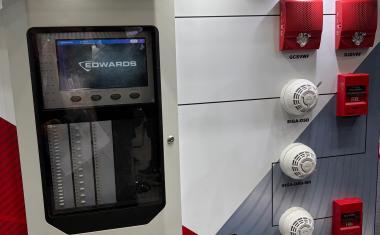Bosch improves sales in all business sectors
The Bosch Group has made a good start to 2015. In the first quarter, sales grew by roughly 13 percent.1 After adjusting for exchange-rate effects, the increase was 5.4 percent. For...
The Bosch Group has made a good start to 2015. In the first quarter, sales grew by roughly 13 percent.1 After adjusting for exchange-rate effects, the increase was 5.4 percent. For the current fiscal year, the global supplier of technology and services expects its sales to grow 3 to 5 percent after adjusting for exchange-rate effects. Because these effects are considerable, Bosch expects its nominal sales growth to be higher than this range.
Presenting the annual financial statements in Gerlingen, Germany, Dr. Volkmar Denner, the chairman of the Bosch board of management, said: "Our economic and technological strength in our established fields of business allows us to open up new market segments." Internet-enabled products and internet-based services are one of the focal points of the company's future sales growth. "We are driving connectivity forward in all our business sectors and playing an active role in shaping it," Denner added. In 2014, Bosch launched many new products and connectivity solutions. They include web-enabled ovens and software solutions for connected heating systems and buildings, as well as for connected industry and connected mobility.
Business developments in 2014: significant progress
In 2014, product innovations again helped Bosch to further improve its market position in many areas. In the past business year, the company increased its sales by a nominal 6.3 percent to 49 billion euros. Adjusted for exchange-rate effects, growth was 7.4 percent. As a result of negative exchange-rate effects to the tune of some 500 million euros, the temporarily strong euro had a considerable impact on the sales figure. This strong development of sales also contributed to an improved result. Earnings before interest and taxes (EBIT) rose to 3 billion euros last year - a year-on-year increase of roughly 10 percent. Bosch thus disclosed an EBIT margin of 6.2 percent in 2014. This is roughly one percentage point better than the value for 2013, adjusted for one-off and extraordinary effects. "Our rigorous work on costs also played a part in this significant improvement in result. In 2014, we were successful despite only moderate global economic growth," said Dr. Stefan Asenkerschbaumer, the Bosch chief financial officer and deputy chairman of the board of management. Following the complete takeover of BSH Bosch und Siemens Hausgeräte GmbH (now BSH Hausgeräte GmbH), the supplier of technology and services has strengthened its position in the area of smart homes. And with the acquisition of ZF Lenksysteme GmbH (now Robert Bosch Automotive Steering GmbH), Bosch has added to its portfolio in the growth area of automated driving.
Mobility solutions for tomorrow's traffic
For Bosch, automated driving is a significant area of growth. The company is successively launching new driver assistance systems. For example, 2015 will see the start of series production of remote-controlled parking, the traffic jam assist, and an assistance function for evasive maneuvers and turning against oncoming traffic. In the Mobility Solutions business sector, more than 2,000 engineers are working to make the auto pilot for drivers a reality. When it comes to the mobility of the future, Bosch is not only concerned with automation, but also with connectivity and electrification. As of now, the company has received 30 orders relating to electrical powertrains. Each year, Bosch invests nearly 400 million euros in electromobility, not least in further developing battery technology. "We were instrumental in the success story of the diesel. We want to do the same for the electrical powertrain," Denner said. One key to the market success of electrical powertrains is their suitability for everyday use. For example an app developed by Bosch gives drivers access to a network covering 80 percent of all web-enabled charge spots in Germany. For users, this means that recharging their electric vehicles is easy.
Today, Bosch sees itself as a supplier of mobility solutions that cover more than just the car. In 2014, systems such as gasoline and diesel direct injection were once again extremely successful. Increasingly, they are being joined by software solutions and mobility services. "Connectivity makes completely new solutions possible for the multimodal traffic of the future. And in established areas as well, it will play a significant role in creating customer benefit and conserving resources," Denner said. Last year, for example, Bosch debuted connected electronic engine management systems for two wheelers. Riders can use their smartphones to read and evaluate vehicle data.









